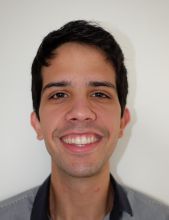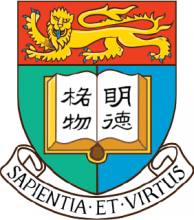
See the Times Higher Education World’s Best Small Universities 2016 table here.
Clara Carrera, an international student at École Polytechnique in Paris, explains the benefits of a small university for international students
I was not convinced about my choice to attend École Polytechnique. Of course, I was aware of its excellent status and its international prestige, and all the alumni I had met had told me that going there was the best experience of their lives. Still, we were just 500 students per year group, far less than in my original university, the Polytechnic University of Catalonia in Barcelona, and I feared that I would feel as if I were back in high school.
Fortunately, I could not have been more wrong. The prestige of the institution and the selective process to get in creates a unique environment of excellence; everyone around you had excelled in his or her previous studies. École Polytechnique creates the opportunity to gather all these people and make them live, learn and work together. On top of that, the ratio of staff to students is high. Not only do you get personalised attention from high-level researchers and professionals, but also the administration can address the situation of every student individually. Further, the centre offers a multidisciplinary education, and humanities and language courses are compulsory. So I find myself studying at a small engineering institution, and yet even my sociology class is taught by a national research director whom I can meet in his office by just sending an email!
In parallel, international students enjoy special attention from the school administration. There is a three-month preparation on the campus before the arrival of the French students, where we get not only intensive French lessons, but also scientific courses to familiarise ourselves with the French problem-solving approach – not surprisingly a lot more formal than everywhere else in the world. Also, extracurricular activities profit from the cultural diversity of students, which everyone takes pride in: for example, the Languages and Cultures Week, which will take place in mid-February, is exclusively organised by students.
- The rest of the best: top universities in France
What I find unique is the team spirit, which is actively nurtured by the administration, by tradition and because…the school is small. You get to know most of your fellow students, because you share classes and because the social activities, mostly organised by students, are actively encouraged. Further, team spirit is built at different levels. For example, sport is one of the basic pillars of the student experience at École Polytechnique. Everybody is expected to participate in at least one sport, and accommodation on campus is based on that; one’s team is one’s family. In my case, I chose handball, and I live in the handball building and cook in the handball kitchen. Many activities are organised to go together to watch handball matches in Paris, or to support each other’s competitions.
The conclusion and the consequence of all the above is that, as I had been told before I arrived, my time in École Polytechnique is becoming an unforgettable experience. This explains why alumni feel fond of, and remain so attached to, their alma mater, and why they enthusiastically help current students. I doubt that this level of attachment can be found in a large university where each individual is lost among several thousand students – but in a small university, such things become possible.
Clara Carrera was born in Barcelona in 1994. She chose to study civil engineering in the Polytechnic University of Catalonia before joining École Polytechnique in a two-year international exchange programme. She is studying economics and applied mathematics, and hopes to pursue those subjects in her master’s degree. She plays in the handball team and participates in the vibrant student life at École Polytechnique, mainly in the microcredit student organisation, X-Microfinance.
Gabriel Rezende Nahas on why excellence is not dependent on the size of a university
Going from the University of São Paulo to École Polytechnique was a clash of two worlds. The first is a colossus in Latin America: it has more than 90,000 undergraduate and postgraduate students, and the complexity of a metropolis. The latter is a French boutique university: there are only 1,000 students living on a campus that has the atmosphere of a small village in the countryside.
Being on a small campus gives you the opportunity to have dedicated mentoring. Here, I am not just another international student. I am the Brazilian who is part of the rowing team and is pursuing chemistry and mechanics. Teachers and staff are interested in listening to your specific point of view. Whether it is to discuss with the École Polytechnique recruiting team why you decided to come here or with an organic chemistry teacher who wants to know what you thought of her course, there is no fear of being left behind. Doors will always be open, and your opinion will be valued.
But what about the downsides? I must say that what I miss most about a big university is the diversity. A huge catalogue of subjects from which to choose and an uncountable number of activities, research groups and discussions going on are difficult things to sustain when you have a limited amount of students.
To sum up, being small or big doesn’t make an institution good or bad; it only makes each university experience unique. What made me choose École Polytechnique was not its size, but its level of excellence. The advantages of a boutique university – like a high level of selection, cohesion and attention – are just some extra nuggets of gold that you can find, and they show you that sometimes less is more.
Gabriel Rezende Nahas is a Brazilian engineering student who is currently part of a double degree programme between the University of São Paulo and École Polytechnique. He has a bachelor’s in chemical and process engineering from Brazil and is pursuing the Ingénieur Polytechnicien programme at École Polytechnique, where he will obtain a master’s in sciences for the environment. After graduating, he aims to do a PhD programme in environmental fluid mechanics.
Gustave Ronteix says the village feel at the university fosters an active social life
Among the many arguments I would present to a student contemplating studying at a “small university”, I would tell him about the incredible cohesion among the student body. You get to know nearly everybody on campus, and there are lots of traditions that promote solidarity among students. This is most visible in the cohesion that alumni demonstrate towards each other. If you ask a question, they most likely will answer you the same day and propose a lunch date the next week. This also stems from the “village atmosphere” on campus (internationals beware, École Polytechnique is sadly not located in the middle of the “Quartier latin” but rather in the midst of the Plateau de Saclay, about 20 minutes by train from Paris). This means that we have open access to an incredible amount of sports infrastructure and facilities. And our relative isolation fosters a very comfy “village feeling”. It also is very safe, people often leave their rooms with their doors wide open, and wherever you go you’ll see familiar faces.
People tend to believe that the bigger your university gets, the more activities are bound to happen. But the incredible student life here belies that cliché. You like skiing? There is a student organisation for that. Enjoy wine? The same. How about sushi making? Or do you like science fiction movies? Do you want to help underprivileged students in mathematics? The list is never-ending, and because the number of students is quite small, it is possible to group everybody who has a specific interest and to create something new. On a more personal level, I have taken great interest in the Model United Nations team and in the student organisation dedicated to entrepreneurship.
Gustave Ronteix is a French-Swedish binational engineering student at École Polytechnique. He is currently focusing on chemistry, physics and biology and hopes to be able to pursue his studies in biotechnologies. He is also thrilled by everything that has to do with entrepreneurship and is working a lot with the Cabinet Start Up, the student organisation dedicated to entrepreneurship and innovation. He hopes to be able some day to merge these interests with his passion for sports, although he has yet to figure out how to do so.
École Polytechnique is ranked at number 3 in the Times Higher Education World’s Best Small Universities 2016 table.
























Have your say